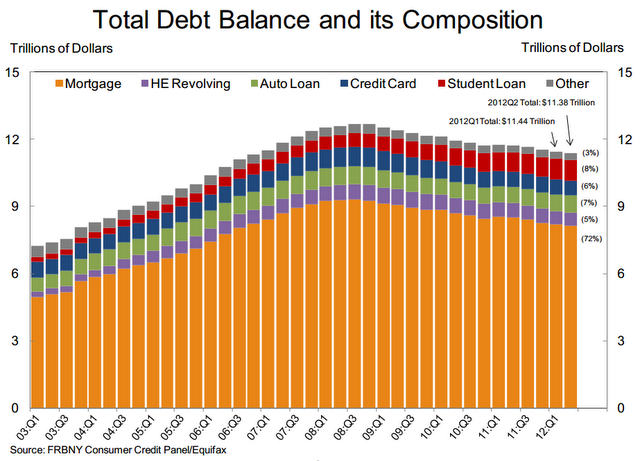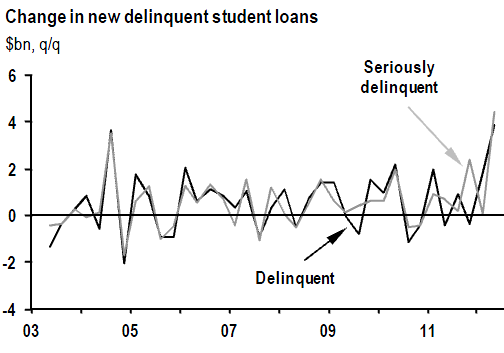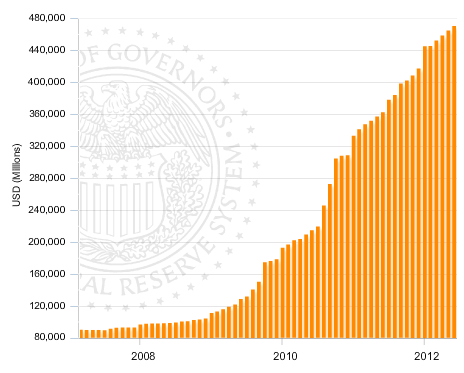Take a look at the chart below. It represents the total consumer debt outstanding in the US. What stands out?
That's right, student loans. Mortgage balances are moving lower, home equity and credit cards look stable or are declining slightly, car loans have been constant for years. Yet student loan balances are rising.
But that is just one side of the story. Not only do we have rapidly rising student loan balances but we are also looking at an unprecedented spike in delinquencies - the highest increase on record.
This may be just a coincidence (although there is some anecdotal evidence out there), but around the time the Occupy Wall Street protests ended, numerous borrowers around the country chose to just stop paying - all to punish the "fat cats" of course. Given that it takes 30 days after a missed payment for loans to be called "delinquent" and 90 days for the "seriously delinquent" label, the chart above lines up quite well with the OWS movement.
Whatever the case, this trend is quite troubling because the US taxpayers are on the hook. The Obamacare bill has a less well known component in it called the Student Aid and Fiscal Responsibility Act. It makes the US government the sole originator of student loans. That's why the loans owned directly by the federal government have spiked since 2009 (chart below).
The chart above of course does not include loans owned by banks but guaranteed by the government.
The Republican Party, sensing a unique opportunity here, has made getting the US government out of the student loan origination business part of their national campaign platform.
The GOP: The federal government should not be in the business of originating student loans; however, it should serve as an insurance guarantor for the private sector as they offer loans to students. Private sector participation in student financing should be welcomed. Any regulation that drives tuition costs higher must be reevaluated to balance its worth against its negative impact on students and their parents.
The private sector however will not get involved on any material scale without the federal guarantees. One way or another the US government will absorb the losses associated with student loan delinquencies. And in the mean time the balances continue to grow. Here are the latest facts from the NY Fed pertaining to the current student loan problem in the US (also discussed here):
- Outstanding educational debt stood at $914 billion as of June 30, 2012.
- Since the peak in household debt in 2008 Q3, student loan debt has increased by $303 billion, while other forms of debt fell a combined $1.6 trillion.
- Student loan delinquency rates increased for the second consecutive quarter; The percent of student loan balances 90 or more days delinquent increased to 8.9% from 8.7% during the second quarter of 2012.
